
“Delete Any Personal Data”: Worker Happily Complies, Watches Arrogant Boss Get Fired In 3 Months’ Time
Reddit user Valuable_Weather used his coding expertise to put together software to streamline warehouse operations at his old job. The result was great and his colleagues enjoyed using it.
But upon his arrival, Valuable_Weather’s new superior tried to make a name for himself and started implementing ideas that left everyone scratching their heads.
Eventually, he even started firing people and the Redditor was one of the unlucky ones who received the short end of the stick. Clearing his space, the resourceful employee also decided to take the program he developed, which, at that point, had already proved to be integral to the company’s success.
This resourceful employee went above and beyond for the company he worked at
Image credits: Remy Gieling (not the actual photo)
But after they got a new boss who didn’t appreciate it, everything started going downhill
Image credits: Juanjo Jaramillo (not the actual photo)
Image credits: stokkete (not the actual photo)
Image credits: Valuable_Weather
Image credits: Danial Igdery (not the actual photo)
Situations like this one can often get messy
Michele Martell, an intellectual property attorney who has counseled businesses from The Muppets to the WWE, as well as many other inventors and creators, states that the Copyright Act automatically assigns authorship to employers rather than employee creators or inventors in two specific situations.
The first is where an employee develops the work within the scope of their employment, while the second occurs when the employer specifically orders or commissions the work from the employee. In both of these cases, the employer is seen as the author of the work in question.
“Broadly speaking, if an employee creates new intellectual property as part of their job, the employer owns that intellectual property,” Martell explained. “For example, if you’re an engineer and you design a more efficient engineering process, creating that new intellectual property is part of the job you’ve been hired to do.”
Everything becomes murkier when an employee creates intellectual property that’s unrelated to their job. “If an accountant for the company, rather than an engineer, came up with that same engineering advancement, for example, there would be an argument that the work isn’t within the scope of their employment,” Martell highlighted.
However, Valuable_Weather said that they had a separate written agreement regarding the program that they have developed, so it made things much, much easier.
Image credits: gpointstudio (not the actual photo)
If you want to go the extra mile at work and put yourself on the map, you need good time management
Many of us would probably like to make a name for ourselves at work by developing an innovative initiative. But even if we have various ideas popping up in our head, the desire to make something happen is not enough. We also need time, which can be a rare commodity. Because of that, making the most of your schedule can be really valuable.
So here are six effective time management hacks, recommended to Bored Panda by Avery Morgan, Chief Communications Officer at EduBirdie, an academic platform where students can choose from hundreds of professional writers to assist them with their writing assignments:
1. The ‘Daily Themes’ principle. “This productivity technique involves dedicating each day of the week to a specific theme or focus area that aligns with your goals,” Morgan explained. “For example, you can commit Monday to creative work, Tuesday to all things research, and Wednesday to those menial tasks that pile up because doing them is such a chore. By following this principle, you can structure your work week in a way that ensures you’re not jumping from task to task, as if trying to avoid hot lava, so you can really focus your attention on the jobs that matter most.”
2. The ‘Airplane mode’. According to Morgan, this is a particularly effective productivity hack, and it’s also 100% free. “The average person is distracted every 40 seconds when working in front of a computer,” she explained. “On average, it takes us 25 minutes to return to our task after an interruption, costing us 2.1 hours each day. Receiving emails, messages, and app notifications every other minute, it’s no wonder we struggle to get any work done. So, if you really want to focus, eliminate those constant distractions from your phone and laptop. After all, 99% of the emails and messages we receive can wait.”
3. Batch tasks. “You don’t write one word at a time or one line of code at a time — yet, most of us are happy to check emails one at a time,” Morgan highlighted. “We lose so much time bouncing between small tasks then wonder why our to-do list has hardly shrunk. Similar to ‘Daily Themes’, grouping batches of similar tasks throughout the day, rather than slicing it up, can improve focus and productivity.”
4. Parkinson’s law. Morgan said that the longer you give yourself to complete a task, the longer you will take to complete it, so giving yourself more time than you need only invites distraction and procrastination. That’s why setting a deadline (one that’s strict but achievable) and sticking to it can be really helpful to get things done.
5. Delegation (even if you can’t hire anyone). “According to the Pareto principle, 20% of our efforts deliver 80% of results. With the other 80% of our time… Let’s be honest, we perform those mind-numbing tasks that require little expertise and we hate doing,” she said. “So why not delegate them? It’s never too early to lighten your workload (even if you don’t have the budget) — luckily, in a digital era, there are lots of free apps and software available for all sorts of tasks, from automation to creativity.”
6. Create a ‘done list’. “We all use to-do lists and they have their uses, sure, but they can also be quite intimidating when they become too long,” Morgan noted. “To maintain motivation, you create a ‘done list’. Instead of only focusing on what you still need to do, create a list of everything you have already accomplished. This can boost motivation and productivity by giving you a sense of achievement and progress. Studies show that reflecting on past accomplishments can boost our mood and increase our drive, pushing us to reach our goals.”
Image credits: David Hahn (not the actual photo)
But all of that can go to waste if you have a lousy boss
However, a terrible boss can kill any drive an employee has at work. The old saying that people leave managers and not companies is actually pretty true.
In fact, one in two employees have left a job to get away from a manager and improve their overall life at some point in their career, according to Gallup’s data.
Bad managers are everywhere, and they leave an impression — that’s what makes movies like Office Space so funny. Almost everyone can relate to the sense of dread about coming to work when a manager makes an otherwise good job feel like a waste of your life.
People loved the way he handled the situation
129Kviews
Share on Facebook"Then I have to rewrite the code from scratch, that will take some time... ☺️And will cost you $100,000. Payment in advance."
Unless the C level people offer to bring you back at a much higher pay then at least lease the software to them. You still get money and don't even have to work for them. You can still tie the source code to your PC and if they ever fail to pay then it once again stops working.
"Then I have to rewrite the code from scratch, that will take some time... ☺️And will cost you $100,000. Payment in advance."
Unless the C level people offer to bring you back at a much higher pay then at least lease the software to them. You still get money and don't even have to work for them. You can still tie the source code to your PC and if they ever fail to pay then it once again stops working.

 Dark Mode
Dark Mode 

 No fees, cancel anytime
No fees, cancel anytime 







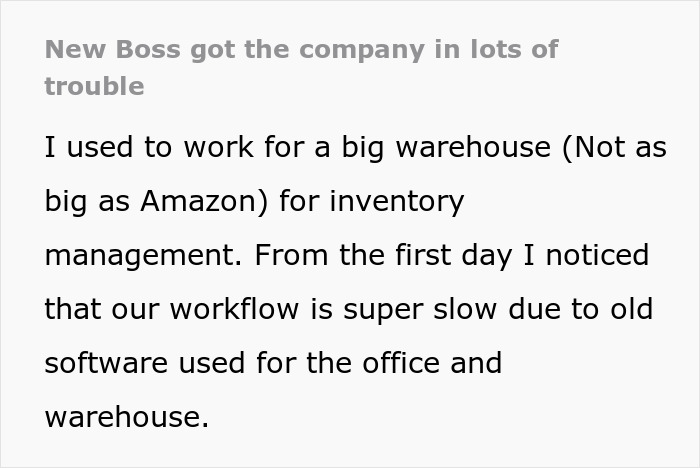
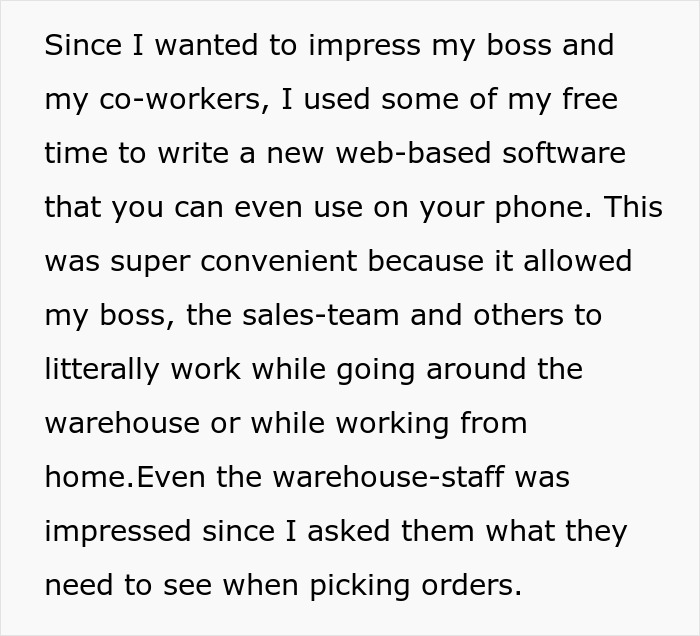
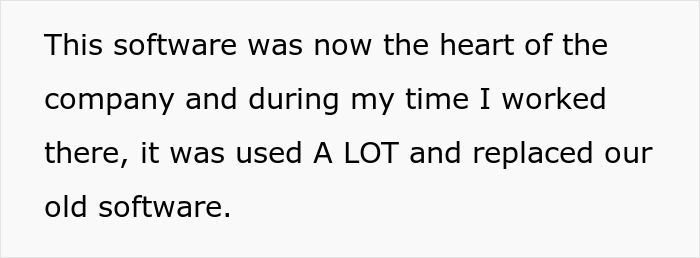
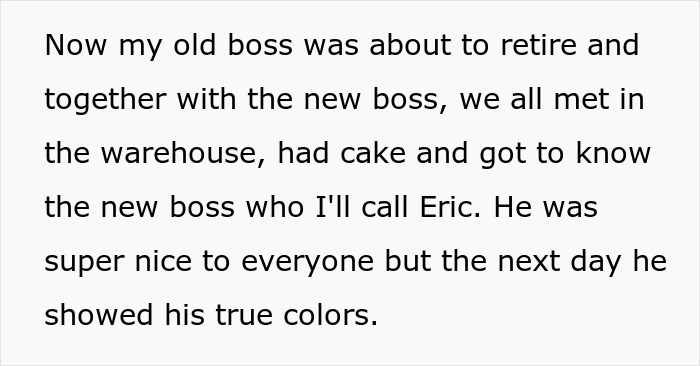

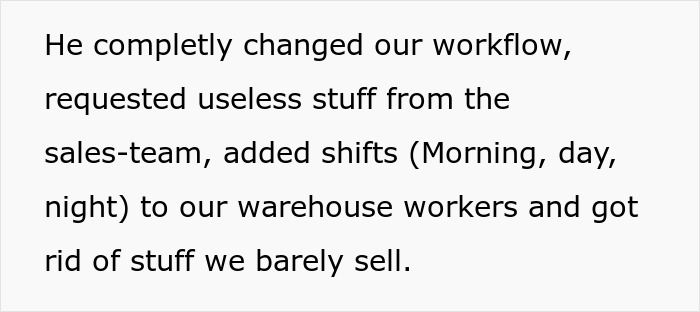

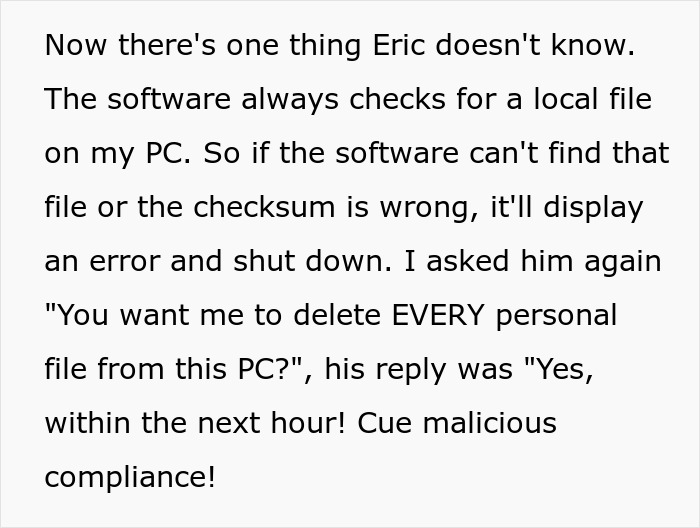
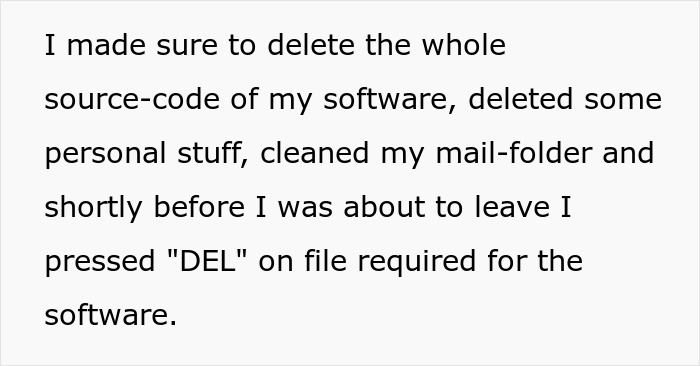

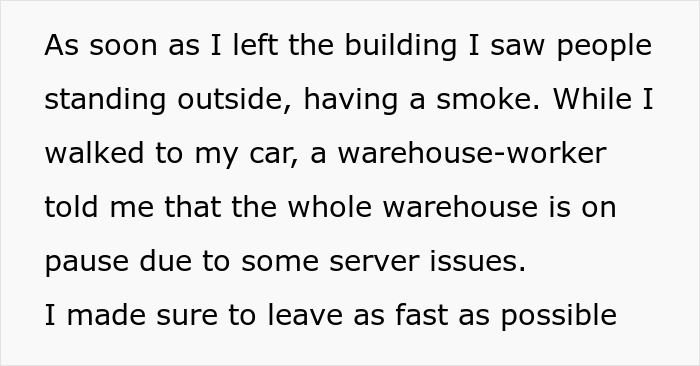
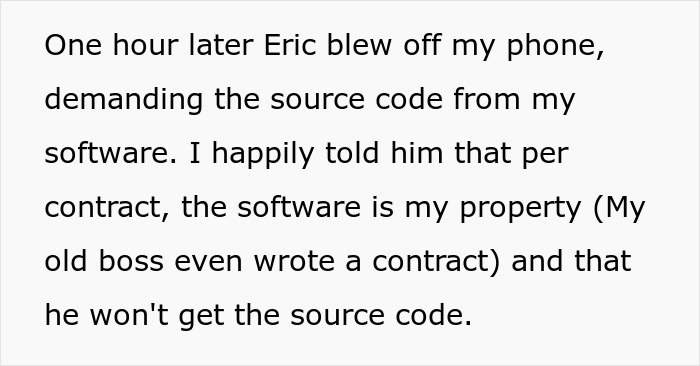
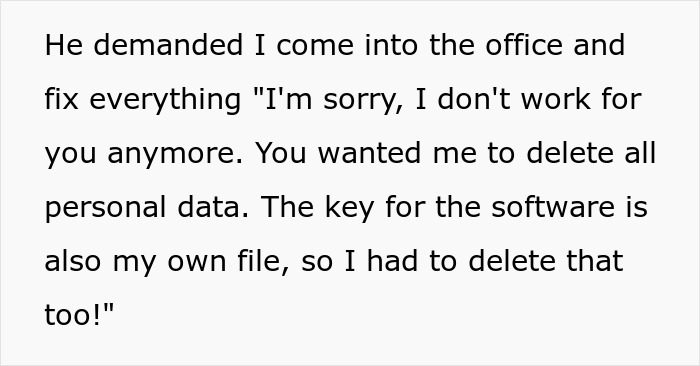
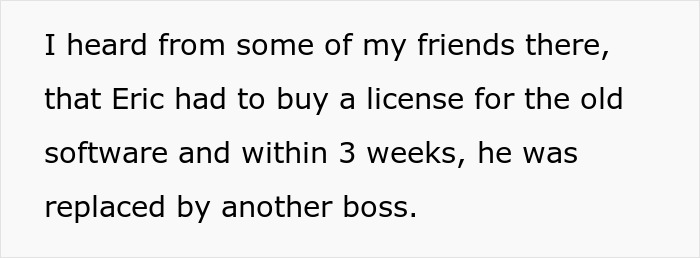



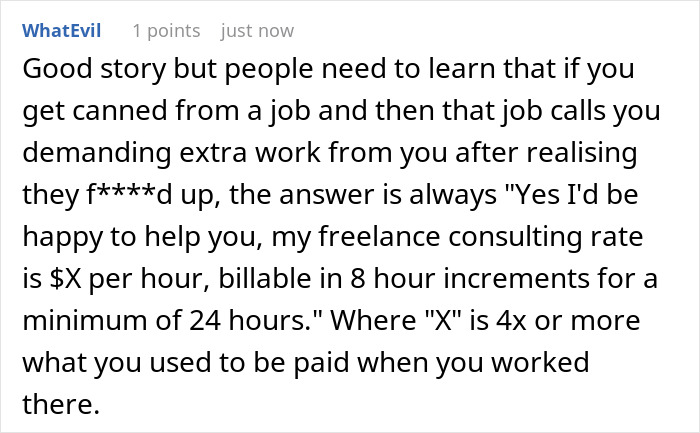
















































104
17